HARISSA - Understanding natural hazards and their associated risks to reduce their incidence and their impacts
Project title
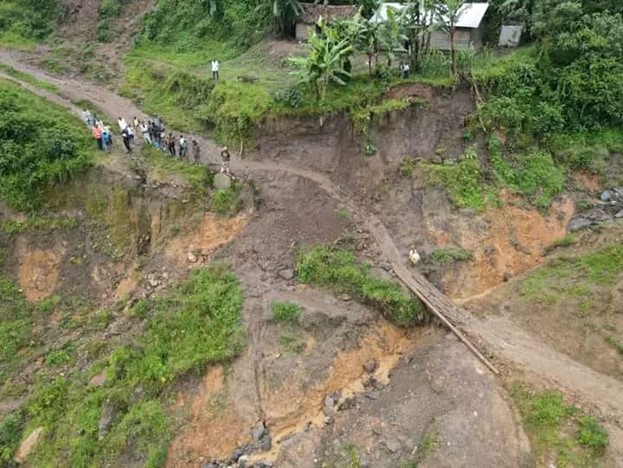
HARISSA - Understanding natural hazards and their associated risks to reduce their incidence and their impacts
Location
DRC, North and South Kivu provinces
Uganda, South-Western sub-region
Duration
2019 – now
Participants
Special focus on the Kivu Citizen Observer network, which groups 22 representatives from the Civil Protection unit of the North and South Kivu provinces, DRC.
The Kivu citizen observers report on disasters caused by landslides, floods, windstorms, hailstorms, lightning and earthquakes occurring in Kivu, a region where information was non-existent just a few years ago.
Operational since December 2019, this network involves 22 citizen observers, all of whom are Civil Protection representatives. Using a smartphone, they collect information on six different types of disasters. After four years of covering an area of 120,000 km² (i.e., four times the size of Belgium), this represents over 1,000 reported events, three-quarters of which are geolocated.
Being a Kivu CO (citizen observer) is a real commitment. Not only does it mean dealing with difficult post-disaster situations, where the population is expecting external assistance, but also facing structural and security barriers that may prevent a CO from successfully and safely completing their mission.
What happens when an event occurs? Rajabu, a CO in Kalehe territory, travels several dozen kilometers by motorcycle to reach the site of a devastating landslide. His intervention is hampered by poor road conditions and weak communication networks. Once in the impacted zone, he documents the event by taking photos and making short videos. He talks to local residents to gather structured information about the event and its impact. But his work doesn’t stop there! The data are then uploaded and shared online with civil protection coordinators and scientists studying these phenomena in the region. Most importantly, in his communities, he’s perceived as a field expert and a go-to person who can give information about disaster risk.
Why is it important to rely on citizen observers to understand natural hazards and their associated risks in Central Africa?
Dr. John Sekajugo has spent four years studying the data collected by the Ugandan Citizen Observer network. According to him, ‘COs are able to record smaller events at local scale that are impossible to detect using satellite imagery. Citizen science complements remote sensing, which acquires information from a distance.’ Dr. Sekajungo’s research shows that citizen science is an ideal approach for gathering information on small but frequent hazards.
Dr. Caroline Michellier is a geographer specializing in vulnerability and risk assessment of the population facing geohazards in Central Africa. She meets regularly with the citizen observers. Together with Théo Mana, the supervisor of the team, she trains them to improve the quality of the data they collect and become true field experts. Dr. Michellier explains how the establishment of the Kivu citizen observers network was built on previous experiences:
‘The underlying idea that led to the development of the Kivu CO network was that we knew disasters were occurring, but we had no idea about where, when, how many, or why. Based on the success of the first network implemented in Uganda, we build the Kivu CO network to understand events occurring in a previously undocumented region.’ What matters beyond the scientific benefits of the project are its social and policy implications. The Kivu citizen observers are key spokespersons when it comes to disaster risk reduction. Over time, the impact of the citizen observers has grown stronger. Their contributions have become increasingly crucial to the dynamics and well-being of the community, while their responsibilities within Civil Protection, which is both their home institution and the one in charge of disaster risk reduction, have increased.
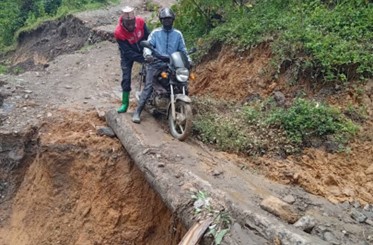 Kivu CO Rajubu Mushema Ash-Faq, operating in Kalehe territory (South Kivu), facing transportation issuez in the affected area © Kivu CO / OC du Kivu
Kivu CO Rajubu Mushema Ash-Faq, operating in Kalehe territory (South Kivu), facing transportation issuez in the affected area © Kivu CO / OC du Kivu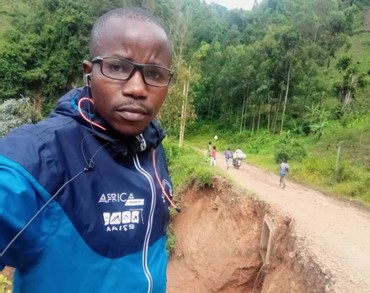
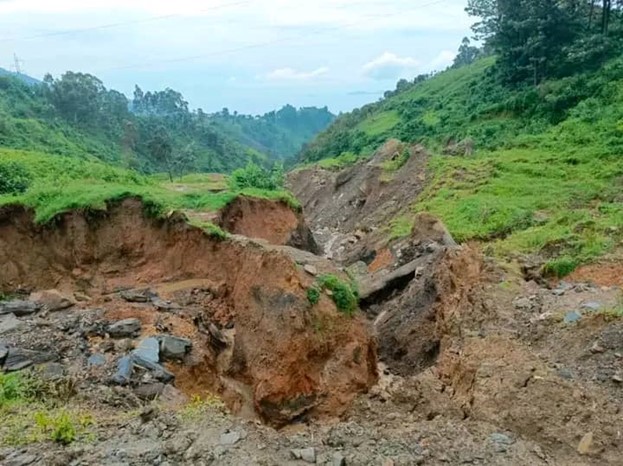 A landslide in Kalehe territory © Kivu CO / OC du Kivu
A landslide in Kalehe territory © Kivu CO / OC du Kivu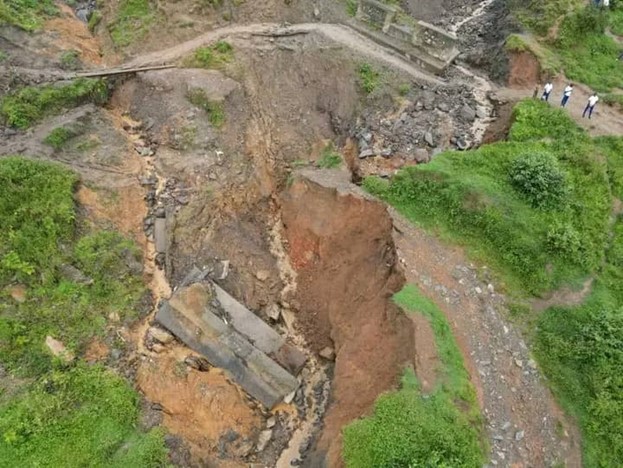 A landslide in Kalehe territory © Kivu CO / OC du Kivu
A landslide in Kalehe territory © Kivu CO / OC du Kivu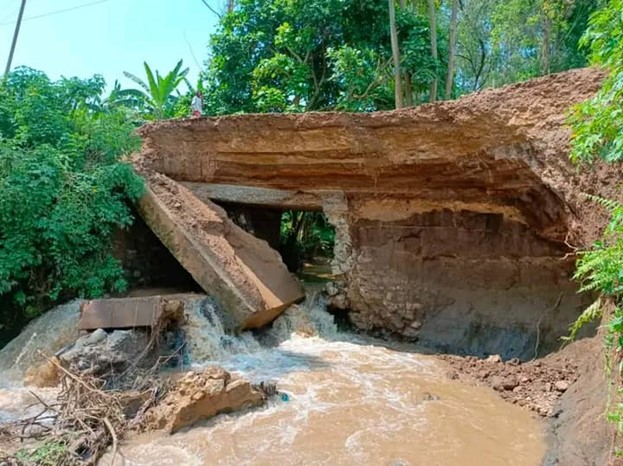 A landslide in Kalehe territory © Kivu CO / OC du Kivu
A landslide in Kalehe territory © Kivu CO / OC du Kivu